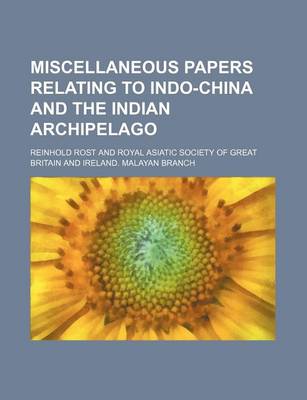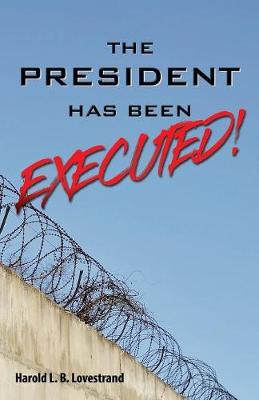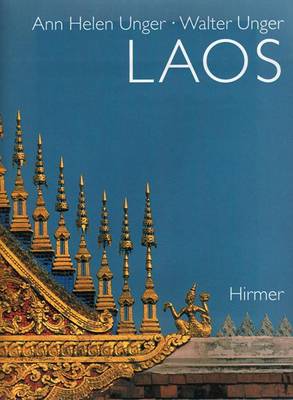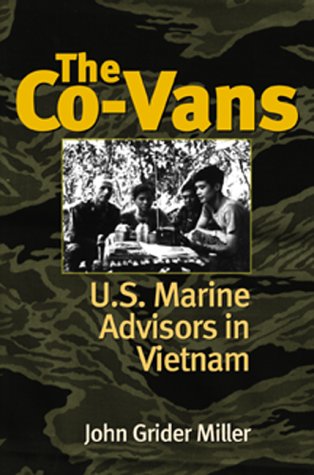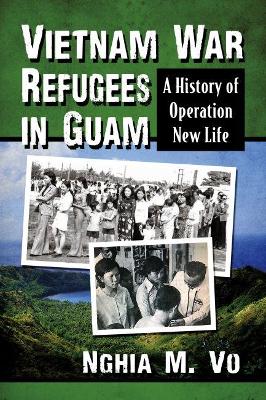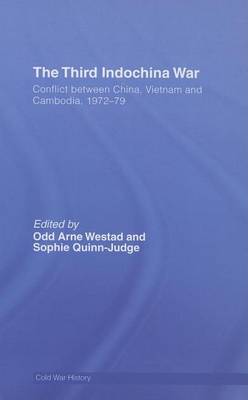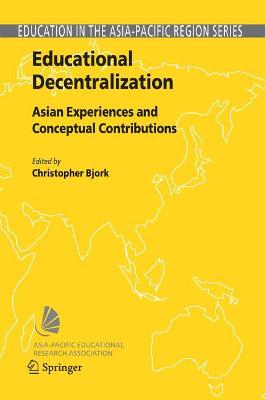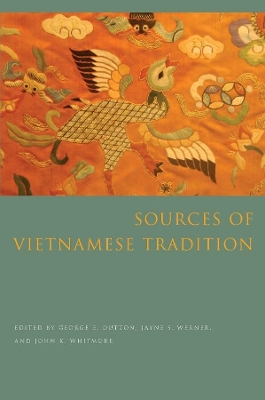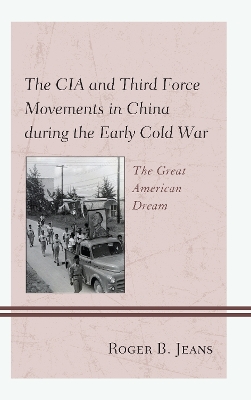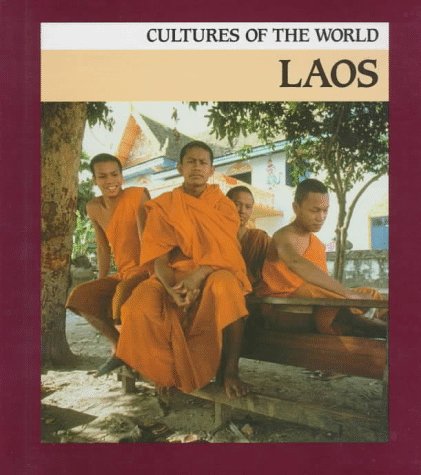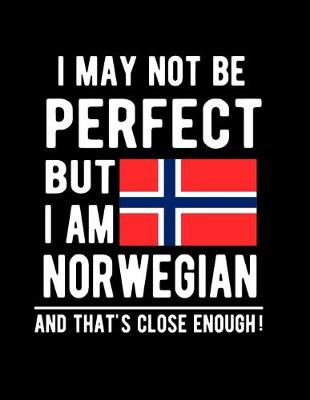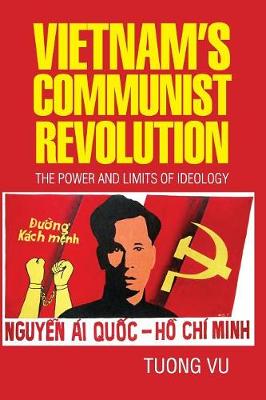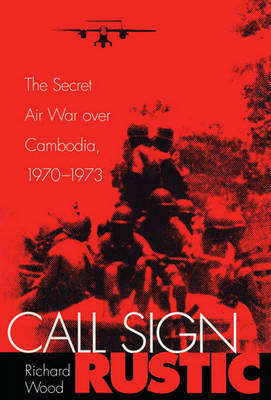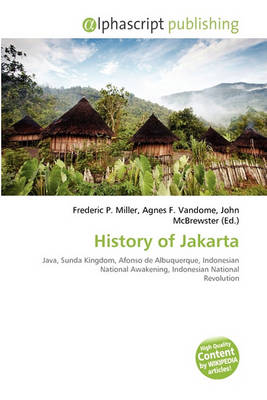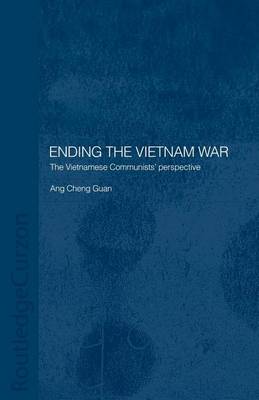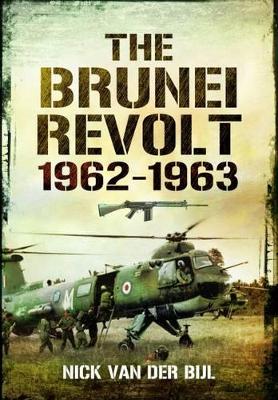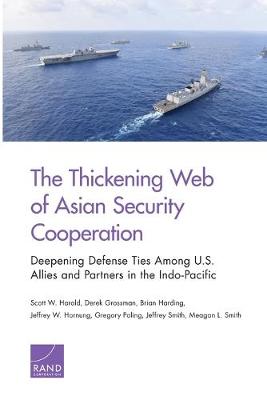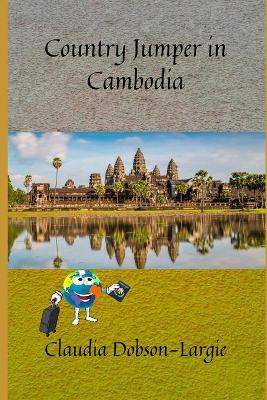Miscellaneous Papers Relating to Indo-China and the Indian Archipelago (Volume 2)
by Reinhold Rost
Depending upon where and when they served, Americans had vastly different experiences in the Vietnam War. Among the more unique experiences were those of the advisors who worked closely with their Vietnamese counterparts, sharing the dangers, privations, local politics, tactical victories, and ultimate defeat as part of the long saga of the Vietnam War. US Marines worked more closely than other advisors with the Vietnamese and were often on their own to deal with the vastly different culture and...
More than 130,000 South Vietnamese fled their homeland at the end of the Vietnam War. Tens of thousands landed on the island of Guam on their way to the U.S. Many remained there. Guamanians and U.S. military personnel welcomed them. Funded by a $405 million Congressional appropriation, Operation New Life was among the most intensive humanitarian efforts ever accomplished by the U.S. government, with the help of the people of Guam. Without it, many evacuees would have died somewhere in the Pacifi...
Educational Decentralization (Education in the Asia-Pacific Region: Issues, Concerns and Prospects, #8)
Decentralization and Education: Asian Experiences and Conceptual Contributions examines the specific ways in which decentralization policies have affected the structure and delivery of education in eleven Asian nations. Written by top scholars in the field, the case studies provide detailed and rich empirical evidence documenting the tensions as well as synchronisms between the ideas that form the basis of decentralization policy and the contexts into which they are introduced. The high quality...
Sources of Vietnamese Tradition (Introduction to Asian Civilizations)
Sources of Vietnamese Tradition provides an essential guide to two thousand years of Vietnamese history and a comprehensive overview of the society and state of Vietnam. Strategic selections illuminate key figures, issues, and events while building a thematic portrait of the country's developing territory, politics, culture, and relations with neighbors. The volume showcases Vietnam's remarkable independence in the face of Chinese and other external pressures and respects the complexity of the V...
The CIA and Third Force Movements in China during the Early Cold War
by Roger B. Jeans
When the Chinese Communists defeated the Chinese Nationalists and occupied the mainland in 1949-1950, U.S. policymakers were confronted with a dilemma. Disgusted by the corruption and, more importantly, failure of Chiang Kai-shek's Nationalist armies and party and repelled by the Communists' revolutionary actions and violent class warfare, in the early 1950s the U.S. government placed its hopes in a Chinese "third force." While the U.S. State Department reported on third forces, the CIA launched...
Laos (Cultures of the World (Third Edition)) (Cultures of the World)
by Lieutenant General Stephen Mansfield
Introduces the geography, history, religious beliefs, government, and people of Laos.
I May Not Be Perfect But I Am Norwegian And That's Close Enough!
by Heritage Book Mart
Vietnam's Communist Revolution (Cambridge Studies in US Foreign Relations)
by Tuong Vu
By tracing the evolving worldview of Vietnamese communists over 80 years as they led Vietnam through wars, social revolution, and peaceful development, this book shows the depth and resilience of their commitment to the communist utopia in their foreign policy. Unearthing new material from Vietnamese archives and publications, this book challenges the conventional scholarship and the popular image of the Vietnamese revolution and the Vietnam War as being driven solely by patriotic inspirations....
President Richard Nixon could not keep American ground troops in Cambodia beyond June 1970 without authorization from Congress, which was not forthcoming. Not wanting to desert the anti-communist Lon Nol regime, he ordered top-secret, round-the-clock air support over Cambodia, and the Rustics were born. Author Richard Wood flew as one of the Rustics, a group of forward air controllers who played a major part in staving off both the North Vietnamese and Pol Pot's Khmer Rouge guerilla forces. Thi...
Memoir of the Life and Public Services of Sir Thomas Stamford Raffles Volume 2
by Sophia Raffles
In December 1962, nationalists in Brunei, the hugely wealthy small kingdom on the North Coast of Borneo, formed the Army of North Kalimantan (TNKU) and, demanding greater democracy, engineered a rebellion against the Sultan and seized a large number of hostages. Perceived to be an attempt by communists to destabilise the Sultanate and seize power, within twelve hours of its outbreak, British forces were despatched by ship and aircraft from Singapore to restore order, the first unit to arrive be...
"Part memoir, part investigative journalism, and completely engrossing, What We Inherit is not a book you'll be forgetting anytime soon." -Oprah Magazine In the wake of her mother's death, Jessica Pearce Rotondi uncovers boxes of letters, declassified CIA reports, and newspaper clippings that bring to light a family ghost: her uncle Jack, who disappeared during the CIA-led "Secret War" in Laos in 1972. The letters lead her across Southeast Asia in search of the truth that has eluded her famil...
Country Jumper in Cambodia (History for Kids, #32)
by Claudia Dobson-Largie
Why Did They Kill? (California Series in Public Anthropology, #11)
by Alexander Laban Hinton
Of all the horrors human beings perpetrate, genocide stands near the top of the list. Its toll is staggering: well over 100 million dead worldwide. Why Did They Kill? is one of the first anthropological attempts to analyze the origins of genocide. In it, Alexander Hinton focuses on the devastation that took place in Cambodia from April 1975 to January 1979 under the Khmer Rouge in order to explore why mass murder happens and what motivates perpetrators to kill. Basing his analysis on years of in...
